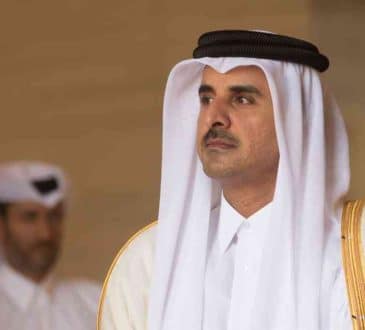Egypt Declared Malaria-Free After Nearly a Century of Efforts

The World Health Organization (WHO) has officially certified Egypt as malaria-free, a monumental achievement for a country with over 100 million inhabitants. This certification marks the culmination of nearly 100 years of efforts by the Egyptian government and its people to eradicate a disease that has plagued the country since ancient times.
Dr. Tedros Adhanom Ghebreyesus, WHO Director-General, highlighted that malaria had been part of Egypt’s history since the time of the pharaohs, but it now belongs to the past. He praised the Egyptian government and its citizens for their commitment to eliminating the disease, stating that the certification serves as a historic moment and an inspiration for other nations in the region. The success demonstrated that with the right tools and resources, achieving such milestones is possible.
Egypt is now the third country in the WHO Eastern Mediterranean Region to receive the malaria-free certification, following the United Arab Emirates and Morocco, and the first to do so since 2010. Globally, 44 countries and one territory have reached this landmark status.
Egypt’s Deputy Prime Minister, Dr. Khaled Abdel Ghaffar, emphasized that while receiving the certificate represents a significant accomplishment, it also signals the beginning of a new phase. He stressed the need for continued vigilance, particularly in surveillance, diagnosis, and vector management, to maintain the country’s malaria-free status. He reiterated the government’s commitment to protecting public health and enhancing Egypt’s healthcare system, guided by the nation’s leadership.
To be granted malaria-free certification, a country must prove that malaria transmission by local mosquitoes has been interrupted for at least three consecutive years, and it must demonstrate the ability to prevent the disease from re-establishing itself.
The presence of malaria in Egypt dates back to 4000 B.C., with genetic evidence of the disease found in mummies, including that of Tutankhamun. Early efforts to combat the disease began in the 1920s, when the country prohibited rice cultivation near residential areas to reduce mosquito contact. By 1930, Egypt had designated malaria as a notifiable disease and established its first control station focused on surveillance, diagnosis, and treatment.
Dr. Hanan Balkhy, WHO Regional Director for the Eastern Mediterranean, noted that Egypt’s success in eliminating malaria is not only a victory for public health but also a beacon of hope for other countries still battling the disease. She credited the achievement to Egypt’s long-term investments in a strong, integrated healthcare system and community engagement, along with its ongoing support for neighboring endemic countries like Sudan.
Egypt’s fight against malaria faced numerous setbacks, particularly during World War II, when population displacement and disruptions in medical services led to over 3 million cases by 1942. Despite these challenges, the country controlled the outbreak by establishing treatment divisions and recruiting thousands of health workers.
In later years, the construction of the Aswan Dam posed a new malaria threat by creating mosquito breeding grounds. In collaboration with Sudan, Egypt launched an extensive vector control and surveillance project to detect and respond to potential outbreaks. By 2001, local malaria transmission was under control, and a minor outbreak in 2014 in the Aswan region was swiftly contained through early detection, treatment, and public education.
Malaria treatment and diagnosis in Egypt are provided free of charge to the entire population, regardless of legal status. Health professionals nationwide are trained to identify and screen for cases, including at borders. Cross-border cooperation with neighboring countries, particularly Sudan, has been key in preventing the re-emergence of malaria, ultimately leading to Egypt’s certification as malaria-free.
| GDP (nominal) | Capital | Head of State | Head of Government | GDP (nominal) per capita | GDP (PPP) | GDP (PPP) | GDP (PPP) per capita |
|---|---|---|---|---|---|---|---|
| Egypt | Cairo | Abd el-Fattah Saeed Hussein Khalil el-Sisi | Mostafa Madbouly | 398.397 | 3.770 | 1.920.000 | 17.123 |
Have you read?
What Business Leaders Can Learn from Top Sporting Event Athletes.
African countries with the highest number of internally displaced persons (IDPs)
Revealed: Countries With the Largest Forex Reserves.
Eric Spofford Is Turning People’s Lives Around as a Business Athlete.
Countries buying the most Black Hawk helicopters.
Bring the best of the CEOWORLD magazine's global journalism to audiences in the United States and around the world. - Add CEOWORLD magazine to your Google News feed.
Follow CEOWORLD magazine headlines on: Google News, LinkedIn, Twitter, and Facebook.
Copyright 2025 The CEOWORLD magazine. All rights reserved. This material (and any extract from it) must not be copied, redistributed or placed on any website, without CEOWORLD magazine' prior written consent. For media queries, please contact: info@ceoworld.biz











